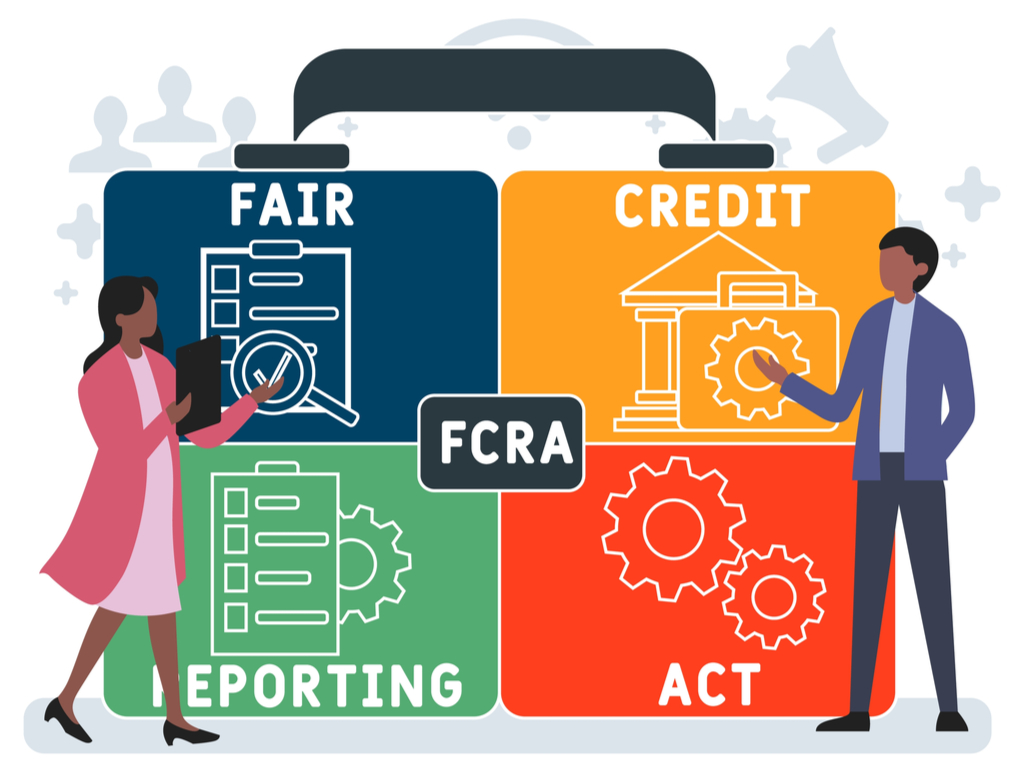Recruitment, while necessary, comes with a degree of risk. Employment screening programs are often used to decrease this possibility. In a survey conducted by the Professional Background Screening Association, 75% of employers use background checks to protect their employees and customers, 52% use them to improve the quality of their hires, and 41% use them to protect their company reputation.
It’s safe to say that employee screening is essential for making informed hiring decisions, but it’s just as important that companies comply with the Fair Credit Reporting Act (FCRA).
As part of our HR Compliance Week, we hosted an educational session with Frasco Profiles. Amy Harrison, Director of National Sales, and Cody Farzad, Director of Strategic Initiatives, led the event to teach HR professionals how to mitigate risk through employment screening programs.
What Is the FCRA?
The FCRA is a federal law that ensures accuracy, fairness, and privacy of the information provided in a consumer report. It covers credit reports, criminal history information, employment verifications, educational verifications, motor vehicle reports, and social media screening.
Under this law, employers have obligations and requirements when conducting background checks.
Purpose of the Background Check
Employers must have a permissible purpose, which, in the case of HR professionals, includes:
- Employment
- Promotion
- Reassignment
- Retention
Disclosure and Authorization
Applicants must be made aware that a background check is being conducted. Before requesting a report, employers must disclose that a consumer report may be obtained for employment purposes. Farzad explains, “This must be in a document that consists solely of the disclosure. This notice must be in writing and in a stand-alone format.” HR leaders should note that the disclosure must be separate from an employment application.
The applicant then must authorize the procurement of the report in writing. Farzad recommends that this be a separate document, as well, as including the disclosure and authorization in other materials opens employers to litigation.
Adverse Action Obligations
In the case that an employer takes adverse action upon reviewing the background check, the employer must send an adverse action notice to the applicant or employee. The notice should include:
- The name, address, and phone number of the consumer reporting company.
- A statement that the company that supplied the report did not make the decision to take adverse action and can’t give specific reasons for it.
- A notice of the person’s right to dispute the accuracy or completeness of information in the report.
- A notice of the person’s right to get an additional free report from the company within 60 days.
- A copy of the consumer report.
- A copy of the person’s right under the FCRA and any state or local disclosures.
- Provide sufficient time for the candidate to view the report and file a dispute.
- Conduct an individualized assessment on the report.
- Provide a final notice to the person that he or she was not hired, at least in part, due to the background check.
Best Practices
In another study from the Professional Background Screening Association, nearly three-quarters of employers conduct background screenings after a conditional job offer. Sixteen percent conduct a screening following a job interview and before a job offer, and only 3% require it before an interview.
Regardless of what point in the recruitment process an HR department requests a consumer report, it’s essential that all requirements of the FCRA be followed.
“Make sure you have a documented screening policy. We recommend reviewing those policies at least annually,” Harrison says. “The policies need to be up to date and in compliance.”
Learn more about background check compliance by watching the on-demand session.

